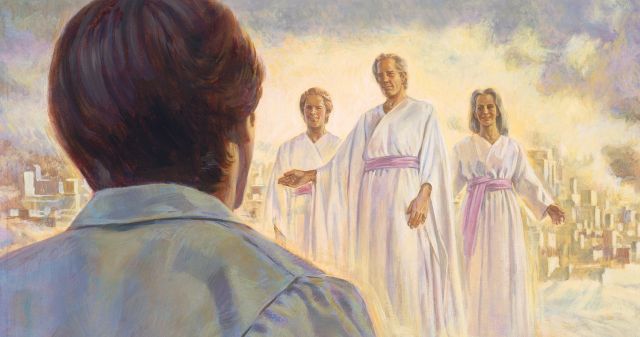To accompany your Come Follow Me study for December 1-7
In addition to reading these two sections this week, you will want to:
- Read Chapter 55: Doctrine and Covenants 137–38 (churchofjesuschrist.org)
- Read Joseph Smith’s Revelations, Doctrine and Covenants 137 (churchofjesuschrist.org)
- Read Saints, 1:232–35.
- Read “Susa Young Gates and the Vision of the Redemption of the Dead,” Revelations in Context, 315–22.
- Watch the following videos:
If you would like a Kahoot game related to these sections which you could use with your family or your class, or which you could play or learn from individually by converting it to a “Challenge” version, click here: https://create.kahoot.it/share/doctrine-and-covenants-137-138/309fb556-724c-4e32-9dcf-a211f90718f1. To use it with a group, after clicking on this link, you will need to log into Kahoot, creating a free account if you have not done so previously, then click on the blue “Host Live” button or the gray “Assign” button, depending on how you wish to use the Kahoot. Some of the Kahoot questions may presuppose that the player has read through the suggested answers to the following Points to Ponder and at least has browsed the Institute student manual as well.
Points to Ponder in Doctrine and Covenants 137-138
1. Why is D&C 137 out of chronological order? Why not put it between sections 108 and 109, where it occurs historically?

2. Do you think when 137:3 says “whereon was seated the Father and the Son” Joseph Smith means that he saw only Jesus, who has a role as both the Father and the Son, or that he saw two beings and just made a still uncorrected grammatical error in using the singular form of the verb?
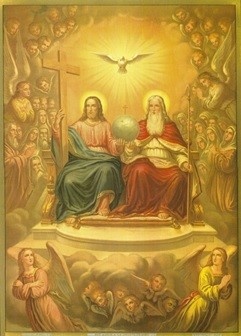
3. How could Joseph Smith’s brother Alvin have been in the celestial kingdom in 1836 when he had been neither baptized nor resurrected by that time? Why do work for the dead if Alvin made it to the celestial kingdom without it?
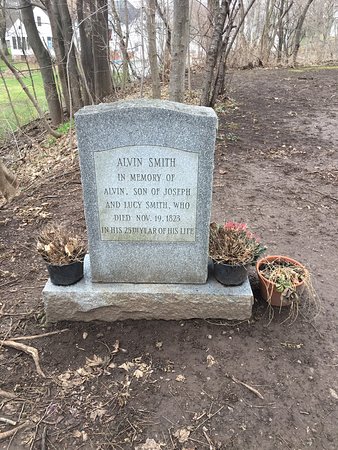
4. Since it had been 16 years since Joseph Smith’s first vision and six since the organization of the Church, and since even the Book of Mormon teaches that “the atonement satisfieth the demands of his justice upon all those who have not the law given to them” (2 Nephi 9:26) and condemns the baptism of little children as not only unnecessary but sinful (Moroni 8), why should Joseph Smith have been so surprised by what he saw in D&C 137?
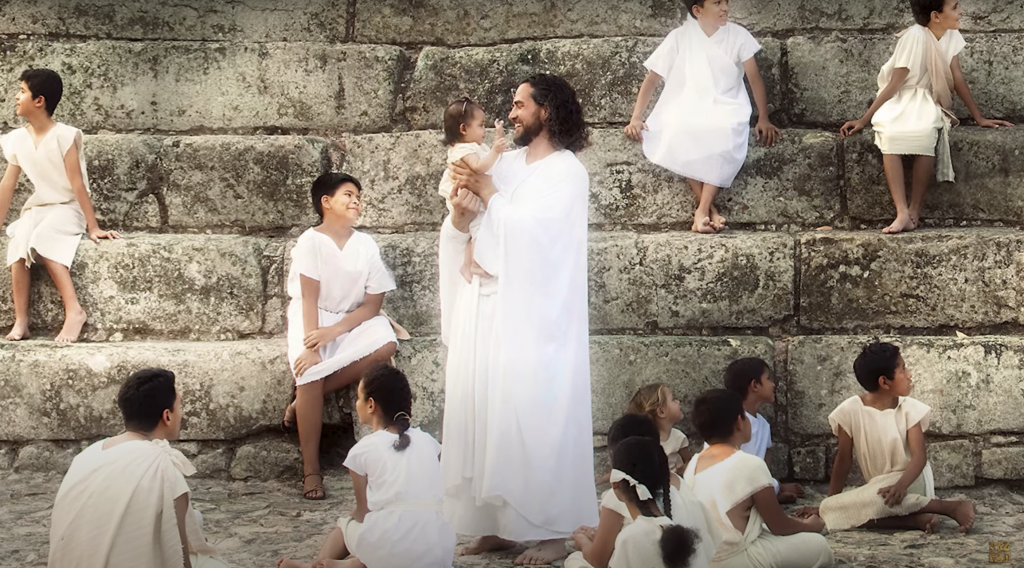
5. What do you consider the key phrases in D&C 138 which best explains why Joseph F. Smith received his vision?
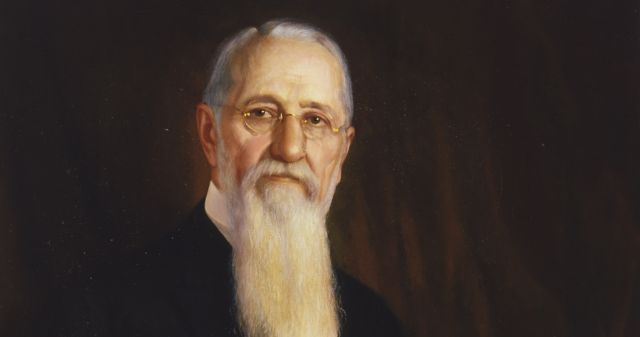
6. In what respect is 1 Peter 3:18-20 not technically accurate, in light of D&C 138?
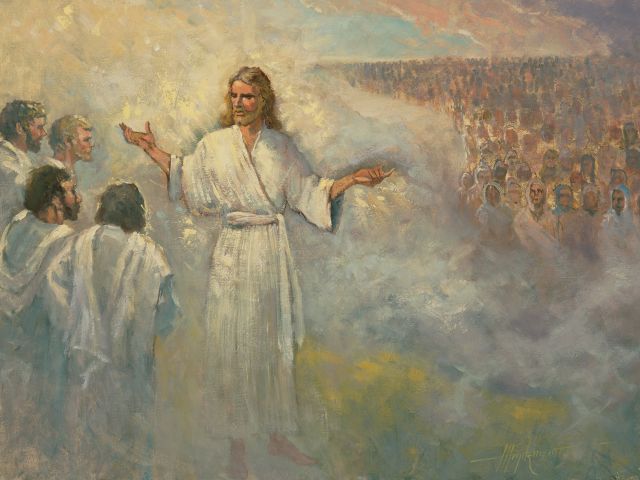
7. Why would not Jesus have been willing to preach personally to the wicked spirits in prison? He certainly preached to wicked people when He was a mortal.

8. D&C 138:18 indicates that the Savior upon his entry into the spirit world declared “liberty to the captives who had been faithful.” If they had been faithful, why were they being held captive?

9. Of all the beings Joseph F. Smith saw in his remarkable vision (D&C 138), which two which he mentions specifically would you assume he was happiest to see?

10. What do we learn in D&C 138 which suggests that our birth at this particular time in the earth’s history is no accident?

11. Alma 40:12 tells us that the spirit world is a “state of rest, a state of peace, where they shall rest from all their troubles and from all care, and sorrow.” How do we reconcile that with D&C 138:57, which makes it sound like we’ll be very busy and working very hard there?
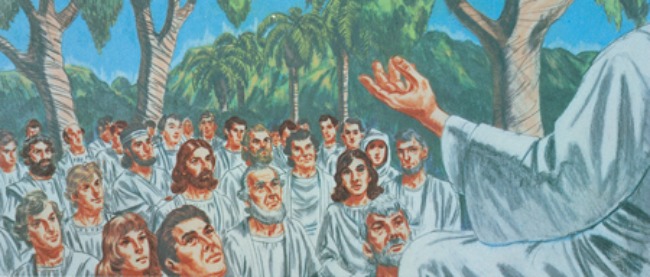
12. What do you consider the single most exciting or inspiring verse in each of these two sections? Why?
Possible Answers to Points to Ponder in Doctrine and Covenants 137-138
1. Why is D&C 137 out of chronological order? Why not put it between sections 108 and 109, where it occurs historically?
The decision to put D&C 137 in the D&C didn’t come until 1979, and it was first bound in that volume in the 1981 edition. By then we were so familiar with the previous section designations that it would have been very confusing to put section 137 in chronological order and have to renumber everything thereafter.
2. Do you think when 137:3 says “whereon was seated the Father and the Son” Joseph Smith means that he saw only Jesus, who has a role as both the Father and the Son, or that he saw two beings and just made a still uncorrected grammatical error in using the singular form of the verb?
We don’t know for sure. I would guess it’s a grammatical error.
3. How could Joseph Smith’s brother Alvin have been in the celestial kingdom in 1836 when he had been neither baptized nor resurrected by that time? Why do work for the dead if Alvin made it to the celestial kingdom without it?
He wasn’t in the celestial kingdom, nor were Joseph Smith’s father or mother, both of whom were still living! What Joseph saw was a representation of what would be or could be in the future, after all necessary ordinances had been attended to.
4. Since it had been 16 years since Joseph Smith’s first vision and six since the organization of the Church, and since even the Book of Mormon teaches that “the atonement satisfieth the demands of his justice upon all those who have not the law given to them” (2 Nephi 9:26) and condemns the baptism of little children as not only unnecessary but sinful (Moroni 8), why should Joseph Smith have been so surprised by what he saw in D&C 137?
This is a great illustration of the fact that one needn’t be omniscient to be a prophet. Though Joseph had translated the Book of Mormon, he didn’t understand all its implications any more than we do on our first reading. The Lord revealed truth to him line upon line as he does to the rest of us.
5. What do you consider the key phrases in D&C 138 which best explains why Joseph F. Smith received his vision?
Probably phrases such as “pondering over the scriptures,” “reflecting,” “my mind reverted,” “as I read,” “as I pondered.”
6. In what respect is 1 Peter 3:18-20 not technically accurate, in light of D&C 138?
Christ did not personally preach to those who had been disobedient in Noah’s day, though he did organize and commission those who would do that preaching.
7. Why would not Jesus have been willing to preach personally to the wicked spirits in prison? He certainly preached to wicked people when He was a mortal.
Four possible reasons might be suggested:
- Jesus wanted to bless His faithful departed servants by allowing them this significant opportunity to do the preaching.
- The wicked would need a much longer period of teaching than the Savior had at His disposal during the parts of three days He had in the spirit world.
- The wicked would find His immediate presence intolerable, due to the guilt they would feel as they reflected upon their misdeeds and missed opportunities.
- No unclean thing can abide the presence of God. In mortality, Jesus’ divine nature was hidden from the eyes of the wicked, whereas in the spirit world, it would be evident.
8. D&C 138:18 indicates that the Savior upon his entry into the spirit world declared “liberty to the captives who had been faithful.” If they had been faithful, why were they being held captive?
They viewed their absence from their bodies as a kind of bondage or captivity, as D&C 45:17 indicates. For the faithful, the imminent resurrection of the Savior would also mean their own resurrection immediately thereafter.
9. Of all the beings Joseph F. Smith saw in his remarkable vision (D&C 138), which two which he mentions specifically would you assume he was happiest to see?
Probably the Savior and his own father.
10. What do we learn in D&C 138 which suggests that our birth at this particular time in the earth’s history is no accident?
138:53, 56 tells us that “many” choice spirits were “reserved to come forth in the fulness of times to take part in laying the foundations of the great latter-day work” and “received their first lessons in the world of spirits and were prepared to come forth in the due time of the Lord to labor in his vineyard for the salvation of the souls of men.”
Joseph Smith similarly taught: “Every man who has a calling to minister to the inhabitants of the world was ordained to that very purpose in the Grand Council of heaven before this world was.” (Teachings, p. 365.)
President Russell M. Nelson has taught us that the restoration is still ongoing. Thus, those valiant pre-mortal spirits being born now may consider themselves still to be among those reserved to help lay “the foundations of the great latter-day work” as much as those who were born two hundred years ago.
11. Alma 40:12 tells us that the spirit world is a “state of rest, a state of peace, where they shall rest from all their troubles and from all care, and sorrow.” How do we reconcile that with D&C 138:57, which makes it sound like we’ll be very busy and working very hard there?
Alma says we’ll rest from “troubles, care, and sorrow,” not from work. To a righteous soul, nothing is more enjoyable, thrilling, and “restful” than productive and meaningful work. Wilford Woodruff tells of a remarkable vision he had of Joseph Smith in the spirit world, which taught him about this:
“Joseph Smith continued visiting myself and others up to a certain time, and then it stopped. The last time I saw him was in heaven. In the night vision I saw him at the door of the temple in heaven. He came to me and spoke to me. He said he could not stop to talk with me because he was in a hurry. The next man I met was Father Smith; he could not talk with me because he was in a hurry. I met half a dozen brethren who had held high positions on earth, and none of them could stop to talk with me because they were in a hurry. I was much astonished. By and by I saw the Prophet again and I got the privilege of asking him a question.
“’Now,’ said I, ‘I want to know why you are in a hurry. I have been in a hurry all my life; but I expected my hurry would be over when I got into the kingdom of heaven, if I ever did.’
“’Joseph said: ‘I will tell you, Brother Woodruff. Every dispensation that has had the priesthood on the earth and has gone into the celestial kingdom has had a certain amount of work to do to prepare to go to the earth with the Savior when he goes to reign on the earth. Each dispensation has had ample time to do this work. We have not. We are the last dispensation, and so much work has to be done, and we need to be in a hurry in order to accomplish it.’
“Of course, that was satisfactory, but it was new doctrine to me.”
12. What do you consider the single most exciting or inspiring verse in each of these two sections? Why?
Your choice. I would probably pick:
137:7, which shows God’s great love, mercy, and justice, giving all an equal opportunity for salvation.
138:57, which gives me hope of something more exciting to do in the life to come than strum a harp or be constantly singing in a heavenly choir.
